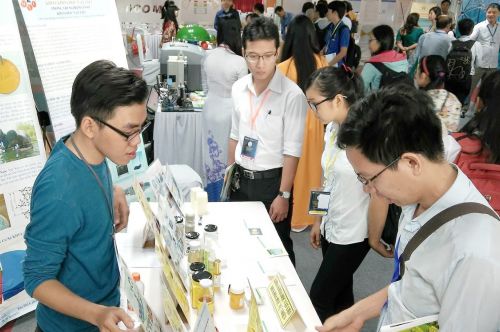Vietnam at risk of losing fish sauce trademark in China

In a recent letter to the science and technology department in the Mekong Delta province of Kien Giang, Bross & Partners, a law firm in Hanoi, said they found last month that the geographic indication of Vietnam’s Phu Quoc Island fish sauce had been registered under a Chinese brand.
Viet Huong Trading Company Limited, which is based in Hong Kong, submitted its trademark application to Chinese agencies in May, the law firm said, adding that the trademark included a map of Phu Quoc Island, an anchovy, and the name “Phu Quoc.”
Le Quang Vinh, lawyer of Bross & Partners, said under Chinese laws, a third party can protest Viet Huong’s application when it is announced in May 2012. If no one protests within three months, it’s very likely that Chinese agencies will grant the trademark to the company, Vinh said.
In the meantime, Nguyen Thi Tinh, chairwoman of the Phu Quoc Fish Sauce Association in Kien Giang, told that the association had asked local agencies as well as the National Office of Intellectual Property of Vietnam to talk with Chinese parties to regain the rights to the brand.
“Upon receiving the information, the association convened a meeting with all members, and everyone was outraged and worried,” Tinh said. “Once the Phu Quoc fish sauce brand is violated, the product’s manufacturers and traders will suffer.”
According to Tinh, while the brand’s geographic indication was put under national protection in 2001, not until last year did the association and Kien Giang authorities apply for brand protection in the EU. The application is still under consideration at the EU, she added.
The famous fish sauce brand was abused by Thai companies who exported the product to the US and European countries in the 1970s.
In 1982, the US-based Viet Huong Fishsauce Company was also granted sole patent rights to the brand by related agencies in the US and later in European countries and Australia.
Phu Quoc fish sauce, however, wasn’t the first Vietnamese product brand registered by foreign companies in different countries.
Experts said that over the past few years, many similar cases have happened, mainly because local businesses have failed to register their brands overseas, either because of ignorance or lack of resources.
Last month, for example, local media reported that China-based Guangzhou Buon Ma Thuot Coffee Co., Ltd. had been granted the sole patent right to Vietnam’s famous Buon Ma Thuot coffee brand in China.
The same situation happened before, in 1997, when French company ITM Entreprises was given the right to Dak Lak coffee brand, another well-known trademark, by related agencies in France, and later in many other countries like Austria and Switzerland.
Meanwhile, a company in Los Angeles had already registered Phan Thiet fish sauce brand in the US and extended its patent to 2019 two years ago.
Not to mention that in 1998 Ben Tre coconut sweets was registered by a Chinese company in China, while in 2001, Trung Nguyen, which owns the coffee trademark of the same name, together with others found that their brands were already registered in many countries.
But several local companies have started taking action.
Le Van Tien, director of the Department of Science and Technology in the central province of Binh Thuan, said the department will draft a plan with other provincial authorities to register for the sole overseas patent right to its Phan Thiet fish sauce brand.
He said at first they will register the brand in Laos, Thailand, Cambodia and the US.
“Although we have yet to export fish sauce to the US and other countries, registration is necessary to put the brand under protection,” said Truong Quang Hien, vice chairman of the Phan Thiet Fish Sauce Association. “We are aware that if we don’t register our product overseas quickly, we will face export problems.”
However, Hien said that local businesses are still in need of government supports in registering the patent right to their products in foreign countries.


